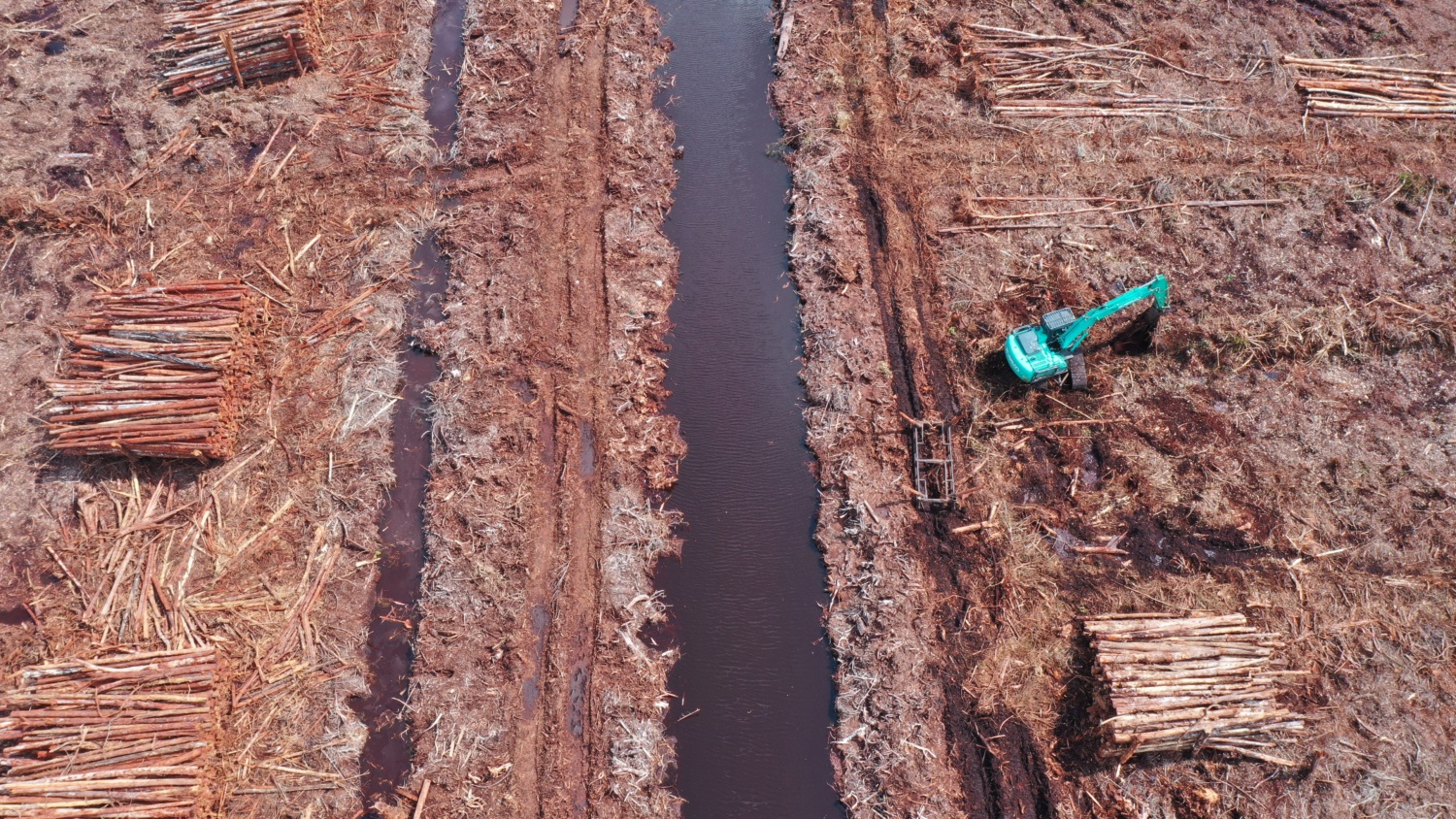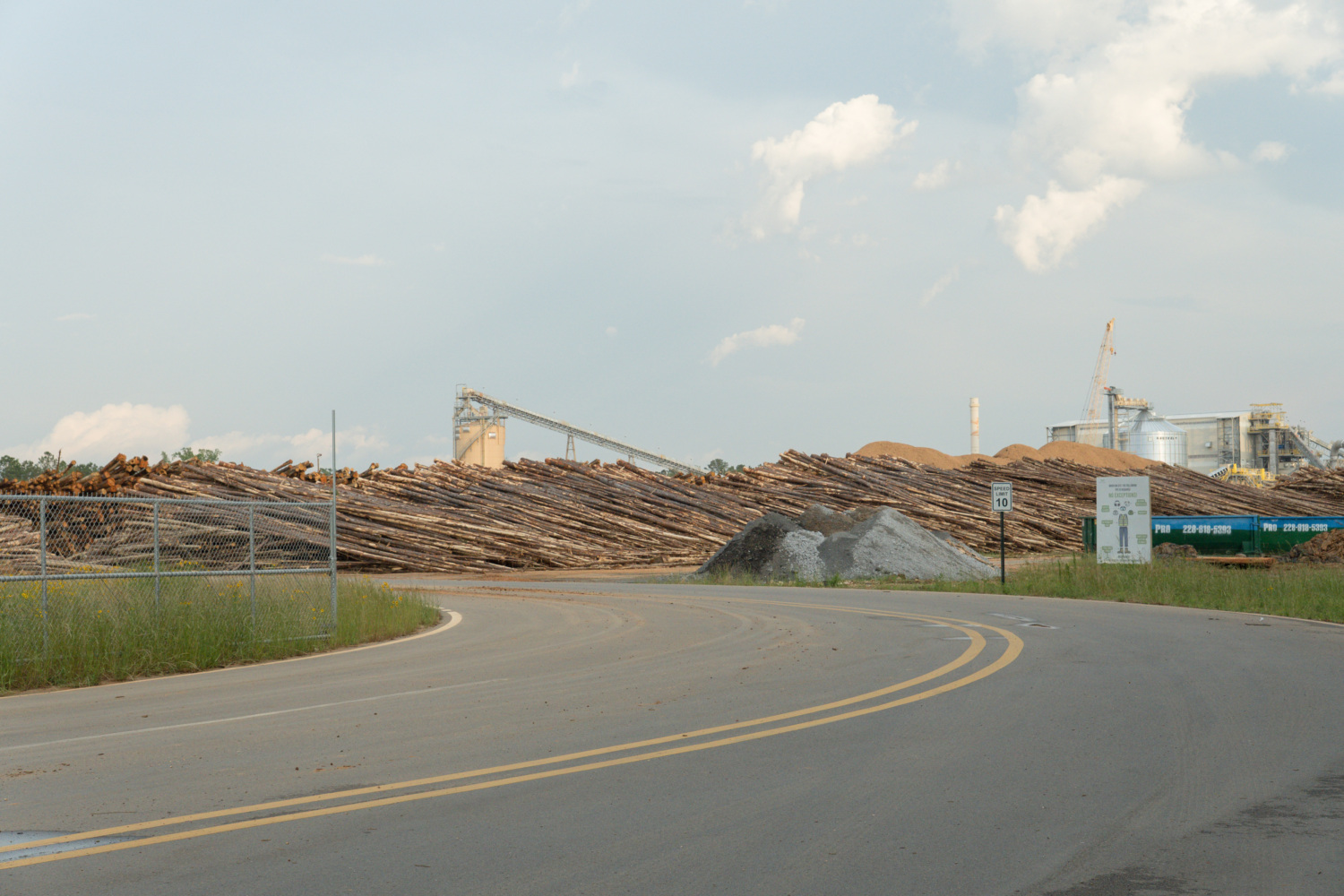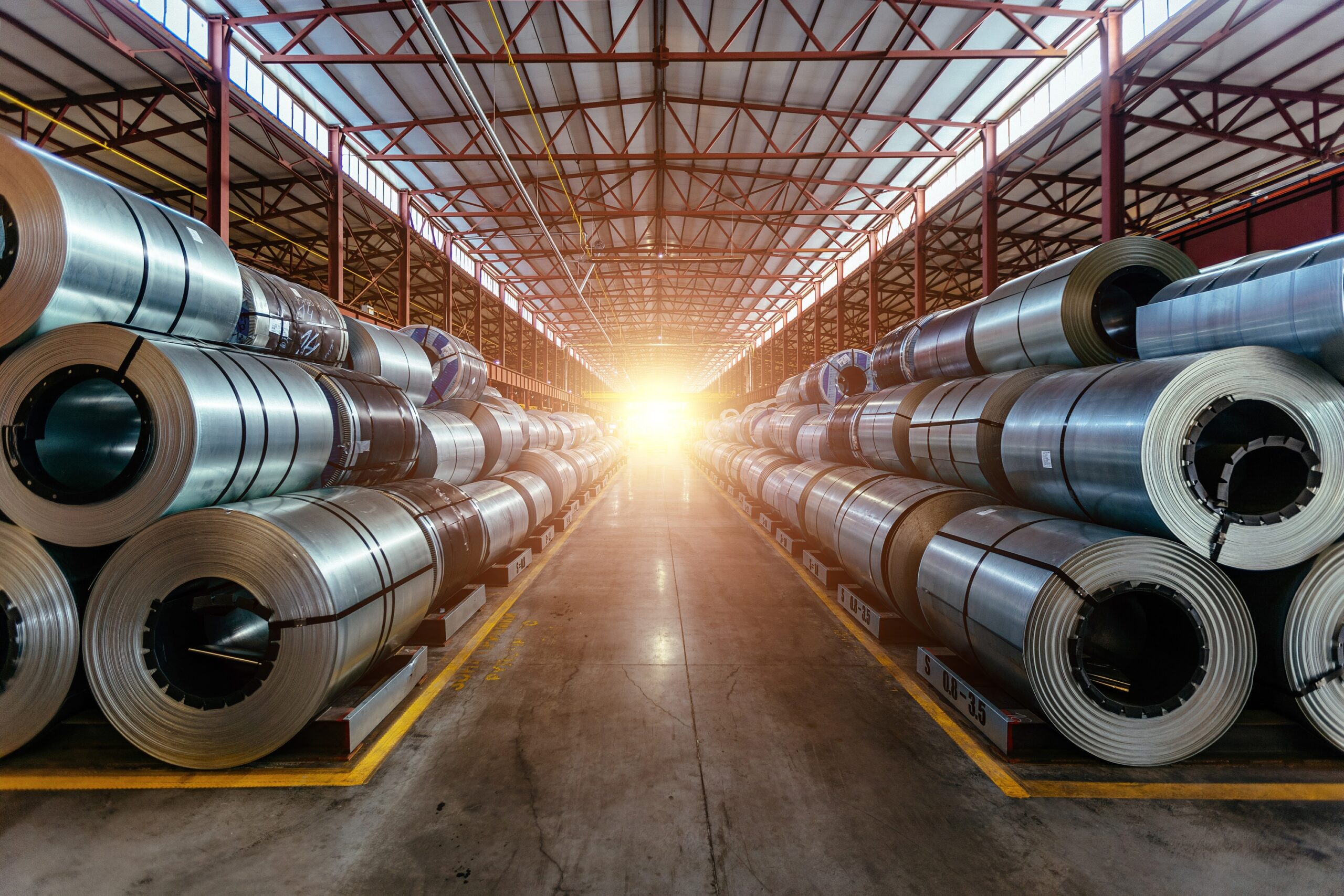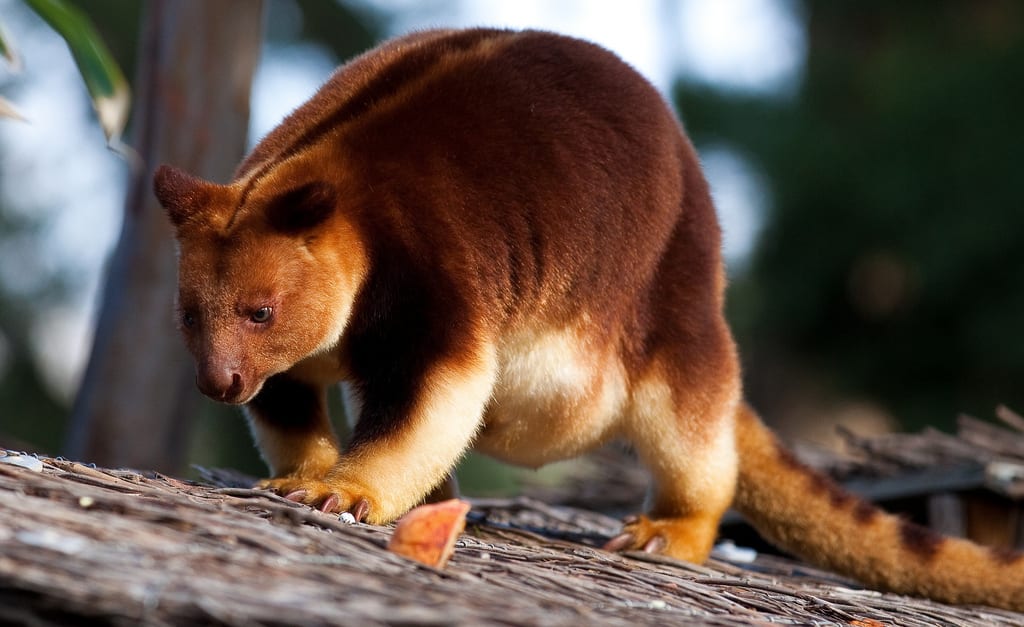
Buyers Beware: POSCO Daewoo’s Deforestation Palm Oil is Ready for International Markets — But Global Buyers are Rejecting it
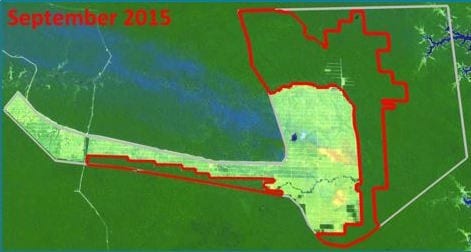
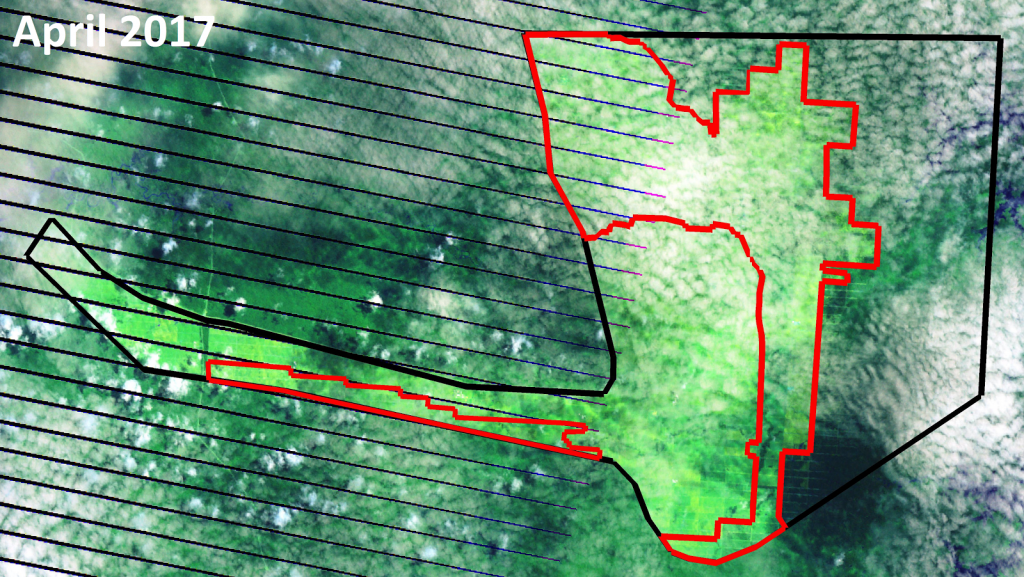
Satellite imagery (above) shows that in the same timeframe that the majority of the palm oil industry was racing to clean up their supply chains, POSCO Daewoo was racing to clear forest as fast as possible. PT BIA has cleared an astonishing 9,900 hectares of forest between September 2015 and April 2017, 2,400 of which occurred just in the first four months of 2017.
Any purchase from POSCO Daewoo would violate No Deforestation policies followed by major palm oil buyers around the world. It would also violate companies’ commitments to the Roundtable on Sustainable Palm Oil (RSPO) because the forest cleared was mostly primary forest that is habitat for endangered species, containing High Conservation Values (HCV’s). Indeed, maps from the Indonesian Ministry of Forestry reveal that 15,800 ha of BIA—nearly half the concession area—are covered by primary forest. This is corroborated by PT BIA’s original business plans, obtained by Mighty Earth, in which the company states that “most of the area is still covered by virgin tropical rain forest.” (See below.)
Mighty Earth reached out to international buyers of palm oil across the supply chain as well as investors to find out who is buying from or financing POSCO Daewoo or BIA. Out of nearly 50 responses from major traders and consumer companies, none were currently sourcing from POSCO Daewoo and/or BIA. Over 20 companies explicitly said they would exclude POSCO Daewoo and BIA from their supply chains or investment portfolios until such time as they could comply with their policies, and several more responded that their responsible sourcing policies would preclude them from sourcing from BIA. For the full list of companies we reached out to and their responses, see here.
Given that BIA’s mill is scheduled to become operational Q1 2017, it’s possible it hasn’t begun selling its palm oil yet. It’s also possible, and likely, that BIA sells to its neighbor and fellow forest destroyer, Korindo, and/or other rogue buyers willing to turn a blind eye to deforestation. However, the responses make clear that the global marketplace is rejecting the palm oil grown on BIA’s destroyed rainforest.
BIA’s Environmental and Social report contains a chart showing the results of a biodiversity assessment which found a number of IUCN-listed endangered species as being present in the area of its concession, including the adorable tree kangaroo and colorful birds of paradise. (The species are listed in the report on page 29 in Bahasa Indonesia. Click here to see the English translations.) Unfortunately, BIA’s biodiversity assessment was determined to be “unsatisfactory” by the HCV Resource Network’s quality review panel.

POSCO Daewoo lacks a commitment to No Deforestation, which means it is continuing to destroy the habitat these species need to survive. Notably, PT BIA’s concessions are adjacent to the Korean-Indonesian agribusiness Korindo’s Papua palm oil concessions, demonstrating that Korindo was being dishonest when it denied the presence of tree kangaroos in the area of its plantations in response to Mighty Earth’s Burning Paradise report, which exposed massive deforestation and illegal burning of intact rainforests for palm oil production by both Korindo and POSCO Daewoo’s PT BIA.
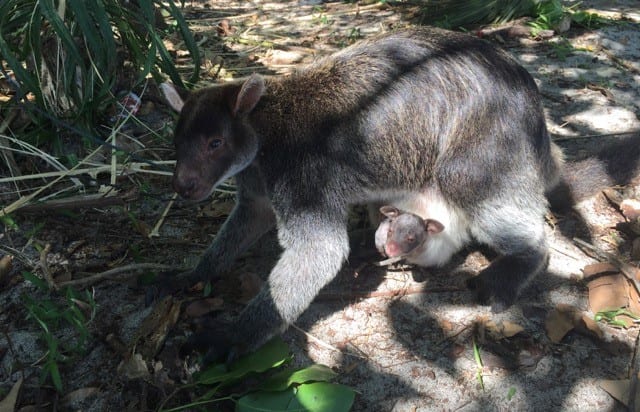
PT BIA has long been the subject of significant global controversy due to its egregious deforestation of primary tropical rainforests in Papua, Indonesia, an area with the largest remaining intact forest landscapes left in Indonesia and home to over 80% of Indonesia’s biodiversity. Last September, Mighty Earth worked with the research consultancy Aidenvironment to do a sustainability assessment of PT BIA. In its analysis, Aidenvironment found that since 2012 BIA deforested more than 19,000 hectares and was continuing to clear at a rapid pace—having cleared 3,300 ha in just an eight month period leading up to the report release. Moreover, the satellite images showed a clear pattern of fire hotspots following deforestation, demonstrating that BIA was using fire systemically to clear land. In September and October 2015 alone, 158 fire hotspots were recorded, concentrated in the area that was deforested earlier that year. Mighty Earth also conducted a field investigation and documented BIA’s immense deforestation through drone video and photographs.
The world’s largest sovereign wealth fund, the Norwegian Pension Fund, announced on August 17, 2015 its decision to exclude POSCO Daewoo because it represented an “unacceptable risk of severe environmental damage”. Greenpeace also exposed HSBC’s financing of BIA in its recent report, “Dirty Bankers” which led to HSBC announcing a No Deforestation financing policy. Greenpeace has called for HSBC to act on BIA as a first “test case” of its new commitment.
This will also be a first test case for BNP Paribas, which just announced a new responsible palm oil financing policy and has a commercial relationship with POSCO Daewoo. They are engaging with them currently, but if POSCO Daewoo doesn’t immediately put a moratorium on forest clearing, they should exit the relationship.
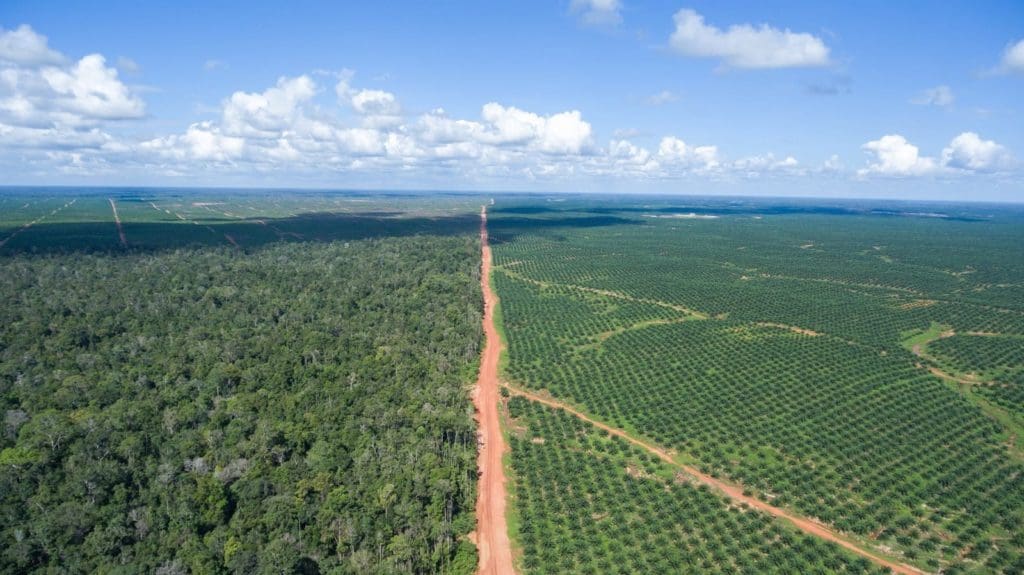
PT BIA’s Business Plans Reveal the Company’s Intent to Deforest Vast Areas
Mighty Earth obtained PT BIA’s original business plans, which reveal the forested characteristics of the land area at PT BIA, the land clearing schedule and profit potential, and a photo-diagram showing the palm oil production process starting with deforestation. Here are some of the most compelling excerpts:
Introduction describing the state of play with Indonesia’s palm oil biofuel production plans, in the context of evaluating the opportunity for BIA’s palm oil to be sold into the biofuel market:
“One obvious controversial aspect of the master plan is the need for vast new land banks for plantation expansion, which some environmental groups say is accelerating already rapid deforestation. Indonesia currently has an estimated 5.5 million hectares of palm oil plantations, and the government now plans to more than double the total area under cultivation through the development of another 6.1 million hectares in Kalimantan, Papua and other provinces.”
Section describing the physical characteristics of the land area of BIA:
“Most of the area is still covered by virgin tropical rain forest.”
Business plan documents:[vc_gallery el_id=”gallery-157915″ medias=”50361,50359″ gutter_size=”3″ screen_lg=”1000″ screen_md=”600″ screen_sm=”480″ single_overlay_opacity=”50″ single_padding=”2″ items=”e30=”]Left: photo diagram from BIA’s business plan showing the palm oil production process beginning with deforestation.
Right: excerpt from PT BIA’s business plan. This is a translation of an article boasting about investors cashing in on the bountiful natural resources of Papua.
Featured photo from Richard Ashurst
